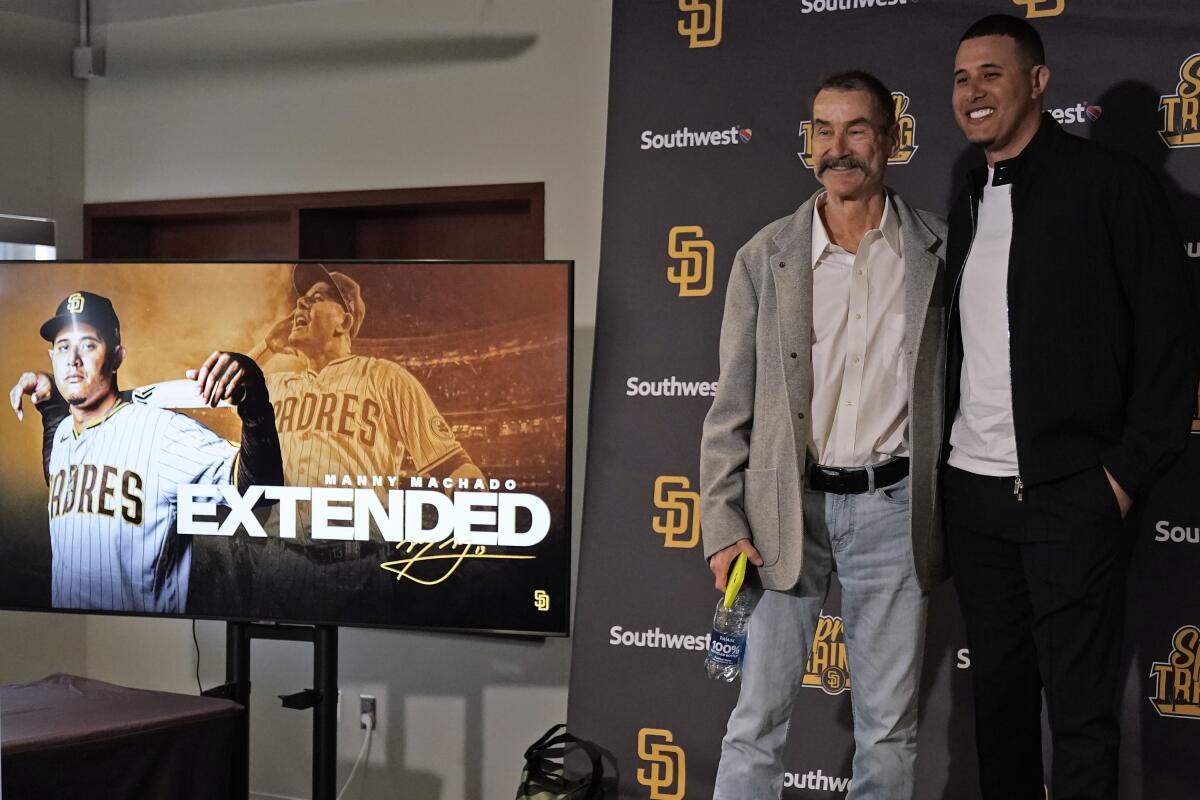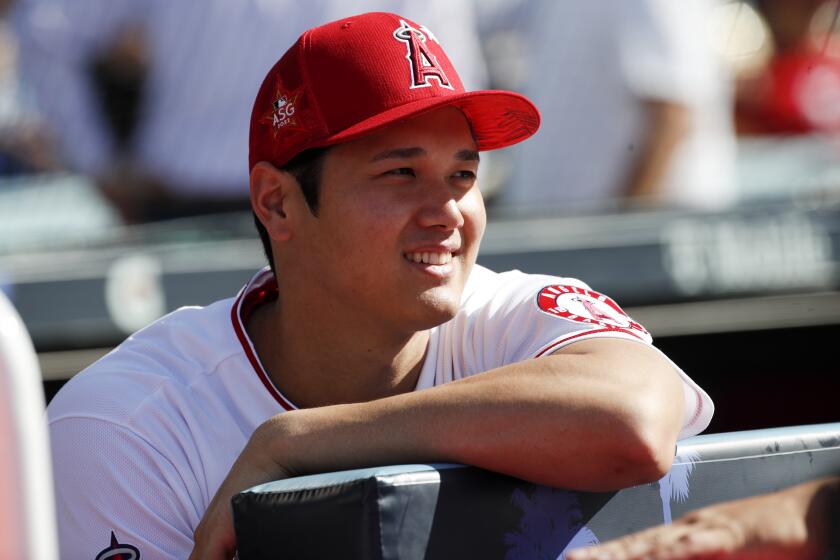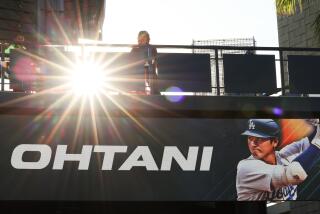Column: Are the free-spending Padres a wise investment? We asked one of their investors

“We don’t pursue the bling.”
That is not a song lyric. That is a mission statement, from an interview with a man whose investment company owns a small share of six teams in Major League Baseball.
Christopher Zook’s company is not about providing investors the chance to win and wear a World Series ring, or the opportunity to shake hands with the finest players in the game, or the nobility of helping to uplift a city through sport.
“Our objective is very, very simple: We want to make money,” Zook said.
No need to boo. MLB owners have welcomed private equity into the sport, and private equity does not invest without an expectation of making money.
The San Diego Padres are baseball’s most intriguing story. The Padres have captivated their city, blessing a championship-starved populace with a star-studded roster. If you want to buy a season ticket, the Padres will kindly direct you to the waiting list.
The reaction from the lords of the sport has been discouraging. The Padres are trying to win, and rival owners criticized them for their spending. Even Rob Manfred, the commissioner, publicly questioned whether the Padres could sustain their approach.
No team outside New York is running a higher payroll this year. Manfred projected the Padres would lose money this year, even before the Bally Sports bankruptcy jeopardized the team’s approximately $50 million in local television rights fees this season. Forbes estimated the team lost $53 million last year.
Zook’s company owns a piece of the Padres. His interest is purely financial, and yet he says he is not frightened by those numbers.
“It doesn’t bother us at all,” he said, “as long as that capital is being invested in something that is going to increase long-term value. If they’re just running a lousy business and burning cash for the sake of burning cash, that would bother us a lot.
“But if, instead, they are investing in their future, getting their fan base excited, expanding their facilities in order to make it a world-class experience for their fans, being able to have a roster that is going to be successful and put wins on the scoreboard, those are all things that add long-term value to the business.”
The Angels have retooled their roster, hoping to play their way into postseason contention and give Shohei Ohtani a reason to remain in Anaheim.
The Padres, with Manny Machado and Juan Soto among the headline attractions, expect to set a franchise attendance record this season. Petco Park will feature 15 concerts this year. The Padres are planning to build a ballpark village atop an adjacent parking lot.
Zook’s Houston-based company, CAZ Investments, manages $4 billion in assets. So does Seidler Equity Partners, the investment company run by Padres owner Peter Seidler.
“This is a gentleman who knows what he is doing, that has been able to be very successful in the past by building businesses, so we feel very confident that he is going to be able to continue to grow this franchise and make it more valuable,” Zook said, “which will benefit us a great deal.”
The Bally Sports bankruptcy accelerated the urgency of determining how you can watch your team on television, with about $1 billion in annual revenue at stake for the 14 teams — the Angels included — with games on Bally channels. Zook is nonetheless bullish on his baseball investments.
“The main reason we’re involved is cord-cutting,” he said.
Wait, what?

The baseball boom has been financed by cable and satellite companies that charge every subscriber for a regional sports network, even when most subscribers do not watch that channel. Cord-cutting means only those people who want to watch baseball will pay for it, and Manfred said the league could not make up for the ensuing lost revenue.
“Not in the short term,” Manfred said last month.
In the long term?
“The RSN explosion that has happened is going to be a little bumpy,” Zook said. “But, if you think about what it will do, it will actually accelerate the trend to where there will be a lot more content provided directly by Major League Baseball.
“We expect mlb.tv (the league’s streaming service) to be the primary beneficiary from this. We expect significant additional pricing power that will be available to the league, and to the teams.”
On Wednesday, for instance, the New York Yankees’ YES channel announced fans could stream games — without subscribing to YES via cable or satellite — for $24.99 per month, or $239.99 per year.
“We really believe,” Zook said, “when all of this reset is finalized, it is going to drive more profitability to the firms and to the teams over the next three to five years. The next three to five months are going to be a little bit bumpy.”
Zook invests through Arctos Sports Partners, and in its stakes in the Padres, Dodgers, San Francisco Giants, Boston Red Sox, Chicago Cubs and Houston Astros. He would not discuss specific profits or losses for any team but said baseball teams in general fared well financially.
“These businesses are a lot more profitable than people give them credit for,” Zook said.
From 2002-2021, MLB teams appreciated in value at an average of 669%, according to data presented at the Sloan Sports Business Conference, with the S&P stock index appreciating 458% during the same time.
A pitch clock, pickoff limit, the changing of shifts on defense and bigger bases could make for a different game in the upcoming season.
“Like a lot of other businesses, you can run them as profitably as you want, or as unprofitably as you want,” Zook said. “If you’re investing heavily in new stadiums and new real estate and new platforms and teams in different leagues, you may not be generating a lot of cash distributions, but you’re increasing the overall enterprise value very dramatically.
“That is really what most of these owners want. When you think about it, most of these owners are not in it for cash flow. They’ve got plenty. What they’re in it for is long-term capital gains.”
Frankly, so is Zook. Opening day is upon us. He likes what the Padres have done. He likes what the Dodgers have done, too.
“They seem to be really firing on all cylinders, from a business growth standpoint,” he said. “They’ve been good for us.”
More to Read
Go beyond the scoreboard
Get the latest on L.A.'s teams in the daily Sports Report newsletter.
You may occasionally receive promotional content from the Los Angeles Times.














